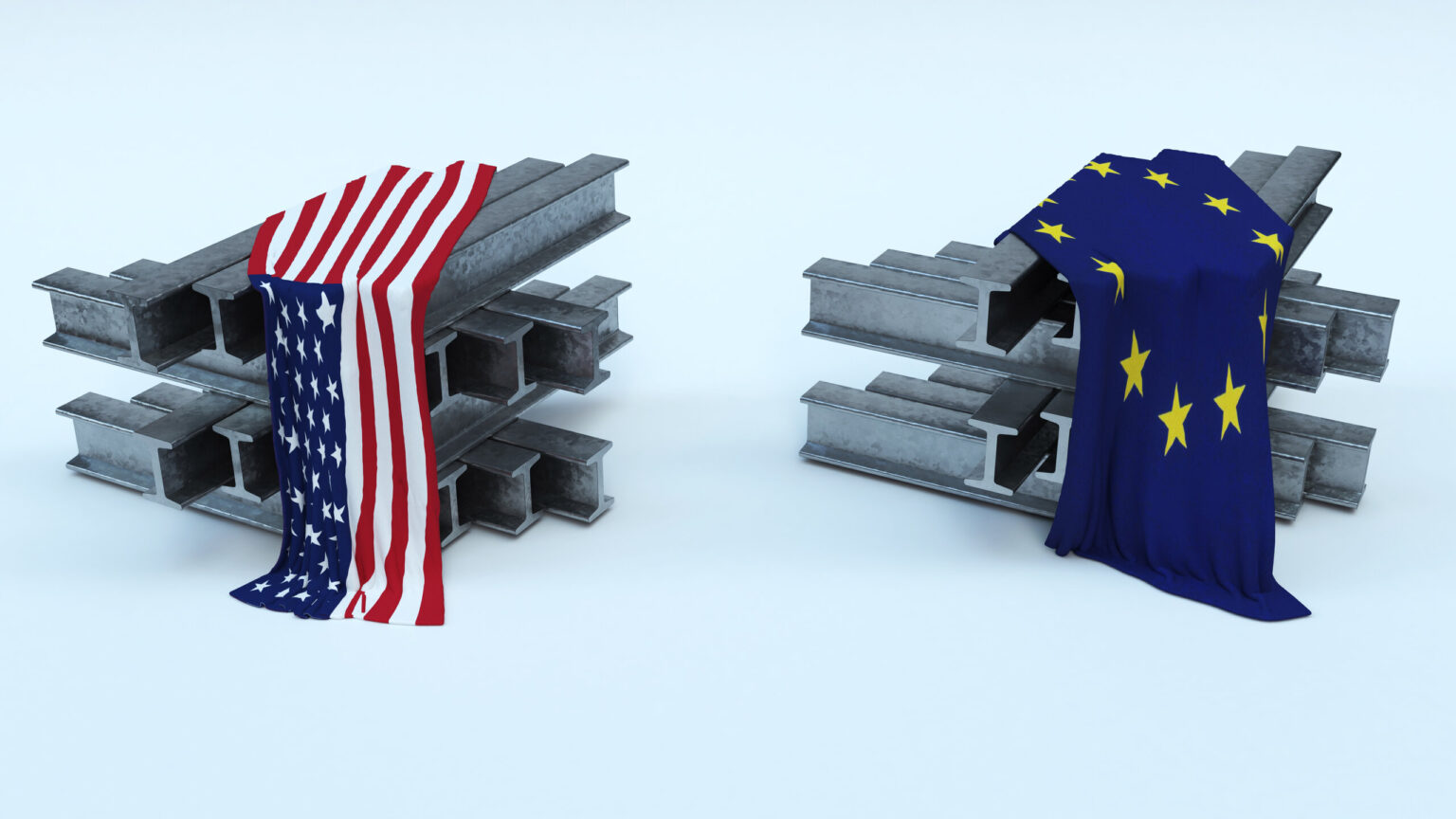The European Union’s Competition Chief, Teresa Ribera, has expressed concerns over the deterioration of the long-standing trust between the United States and Europe under U.S. President Donald Trump’s administration, Reuters reported.
In an exclusive interview with Reuters, Ribera underscored the need for Brussels to maintain predictability and stability, especially in response to Washington’s increasingly transactional approach to global affairs.
A Stand for European Values
Ribera affirmed that while Europe remains open to negotiations with the U.S., it will not be coerced into altering its legislative frameworks. “We need to stick to our strengths and principles,” she stated, emphasizing that democracy, human rights, and European unity remain non-negotiable.
Her remarks come amidst criticism from Trump and his administration, who have accused the EU of excessive regulations and unfair taxation on American tech firms. U.S. Vice President JD Vance recently condemned the EU’s Digital Services Act (DSA), claiming it suppresses free speech and unfairly targets U.S. technology giants.
“If there is a problem, a point of concern, please explain that,” Ribera responded. “It is not like bullying – that you can expect to enter the negotiating table. That doesn’t make sense.”
Rising Trade Tensions and Tariffs
Relations between the EU and the U.S. have become particularly strained following Trump’s decision to impose 25% tariffs on steel and aluminum, set to take effect on March 12, with reciprocal tariffs expected from April. Additionally, Trump’s administration has threatened separate tariffs on automobiles, pharmaceuticals, and semiconductor chips.
Ribera pointed out the stark contrast in economic governance between Europe and the U.S., emphasizing that businesses favor legal certainty over political unpredictability. “They want an ecosystem and a legal framework that provides certainty, stability, and predictability,” she said. “I don’t see any predictability, stability, or affordability in these announcements—this is a little bit shocking.”
The European Commission, which oversees trade policy for the EU’s 27 member states, has vowed to respond “firmly and immediately” to any tariff increases imposed by the Trump administration. European Trade Commissioner Maroš Šefčovič has traveled to Washington for discussions with U.S. officials in an effort to defuse tensions.
Regulatory Battles: Meta and Apple Under Scrutiny
Despite escalating trade disputes, the EU remains steadfast in its enforcement of digital competition laws. Ribera confirmed that the Commission will issue key decisions in March regarding the compliance of Apple and Meta with the Digital Markets Act (DMA). Both companies, under investigation since last year, could face penalties amounting to 10% of their global revenue if found in violation.
Meta’s recent policy shift to charge Facebook and Instagram users fees to avoid targeted advertising has drawn regulatory scrutiny, while Apple stands accused of monopolizing its App Store ecosystem to the detriment of developers.
“There will be decisions along the lines that have been discussed with the companies, developed and based on evidence,” Ribera affirmed, dismissing speculation that EU regulators might delay their rulings due to pressure from Trump or Meta CEO Mark Zuckerberg.
The EU is also investigating whether Elon Musk’s social media platform, X, has breached its Digital Services Act rules against illegal content. Ribera made it clear that Musk’s ties to the Trump administration will have no bearing on the case. “It is not a question of who is the owner of the company that could be in one of these processes,” she stated.
Europe’s Commitment to Fair and Consistent Regulation
As U.S. tech firms voice concerns over the EU’s regulatory landscape, Ribera emphasized that European laws apply uniformly across all businesses, regardless of their country of origin. “When we are doing business in other countries, we have to respect their rules,” she remarked. “When it comes to our digital rules in the European Union, they are very fair; they are the same rules for everybody—American companies, European companies, and Chinese companies.”
The Commission has also extended its investigations to Chinese firms such as TikTok and AliExpress, reinforcing its commitment to an impartial enforcement of competition laws.
A Shifting Regulatory Landscape
While Europe remains firm on digital market regulations, there have been signs of regulatory flexibility in other areas. The European Commission recently withdrew a proposed directive on AI liability and indicated it might soften reporting requirements under an upcoming AI code of practice. However, Ribera framed these moves as internal adjustments aimed at reducing bureaucratic inefficiencies rather than concessions to U.S. pressure.
With the EU and U.S. locked in a complex geopolitical and economic standoff, Ribera’s firm stance signals that Brussels will not be swayed by Washington’s tactics. As tensions escalate, businesses on both sides of the Atlantic continue to navigate the uncertainty posed by shifting policies and trade disputes.
